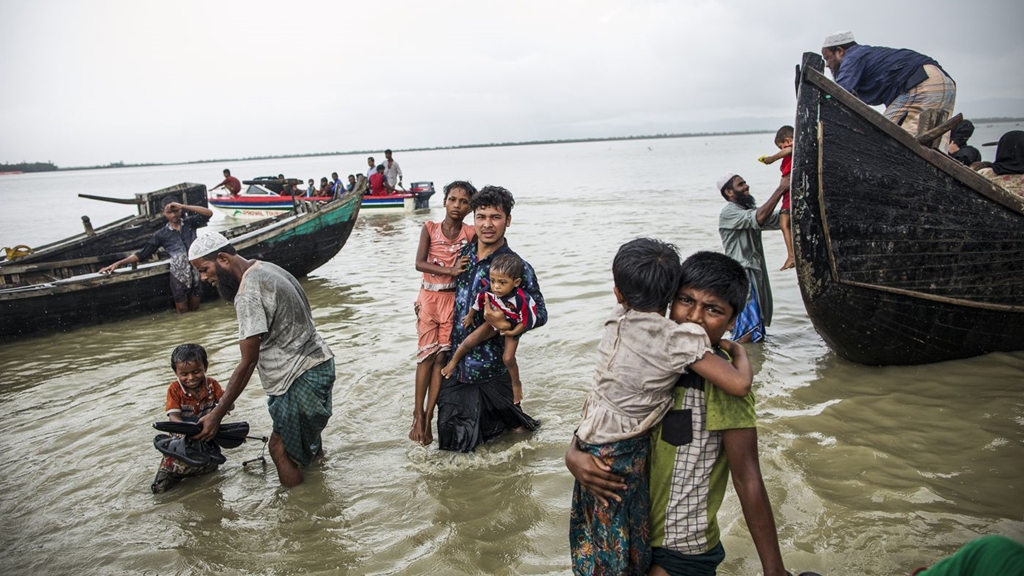
Israeli Envoy Wishes Myanmar Leaders ‘GOOD LUCK’ on Rohingya Genocide Trial
- 27/11/2019
- 0
By Noa Landau , Haaretz
After Haaretz query, tweets by Ronen Gilor expressing support for Myanmar’s leaders in the ICJ trial were deleted
Israel’s ambassador to Myanmar, Ronen Gilor, has recently expressed public support for the heads of the state in a trial held against the country in the International Court of Justice in the Netherlands (ICJ) for the genocide of the Rohingya Muslim minority.
“Encouragement for a good verdict and good luck!,” Gilor tweeted with an article he shared a few days ago.

On Wednesday, he also tweeted photo of him with state parliament officials, and noted that the issue came up in conversation and again emphasized wishing them “good luck.”

Following a Haaretz’s query on the matter to the Foreign Ministry, the tweets were deleted and no response was given.
This month, Myanmar State Councellor Aung San Suu Kyi announced that she will head a legal team to be sent to a court of law. The announcement was posted on Suu Kyi’s Facebook page, a Nobel Peace Prize winner who also holds the role of foreign minister.
Myanmar has been accused of carrying out mass rape, murder and the torching of homes in its operations to suppress the Muslim Rohingya minority in the west of the country in August 2017.
The operations followed attacks by Rohingya rebels against the army of Myanmar, a majority Buddhist country, which is also known as Burma. In the course of the operations, the army forced 700,000 Rohingya to flee to neighboring Bangladesh.
The appeal to the International Court of Justice was filed by Gambia on behalf of the Organization of Islamic Cooperation. At the time of the filing, Gambia’s justice minister and attorney general, Abubacarr Marie Tambadou, said he wanted to “send a clear message to Myanmar and to the rest of the international community that the world must not stand by and do nothing in the face of terrible atrocities that are occurring around us. It is a shame for our generation that we do nothing while genocide is unfolding right before our own eyes.”
The head of the United Nations’ fact-finding mission to Myanmar said last month that there was a substantial danger that additional acts of genocide would be carried out. A report issued in September by the UN mission stated that Myanmar should be held to account for the genocide of the Rohingya. For its part, Myanmar has rejected the allegations that it is guilty of an organized violation of human rights.
Israel was selling arms to Myanmar even after allegations against the regime surfaced and after the country had been placed under an arms embargo by the European Union and after the United States issued sanctions on the sale of weapons.
In September 2017, Israel’s High Court of Justice ruled on a petition filed by Israeli lawyer Etay Mack against the weapons sales, but the decision remained confidential because the justices in the case, Yoram Danziger, Anat Baron and David Mintz, took the unusual step of imposing a gag order on the ruling at the state’s request.
Since then, Israel has been insistent in claiming that it halted arms sales to Myamar. Nevertheless, representatives from Myanmar were seen later by Haaretz at a weapons fair in Israel. The Israeli Foreign Ministry subsequently announced that it has barred their visits to the country to attend exhibitions of that kind.
Beyond the matter of arms sales, however, the relations between Myanmar and Israel have continued on a number of civilian levels. Haaretz reported in May of 2018, for example, that Israel had concluded an educational cooperation agreement with the Myanmar that included curriculum materials on the lessons of the Holocaust and the fight against racism.
In response to a petition filed by Etay Mack, the Israeli government recently said that it was not carrying out the educational cooperation agreement.






